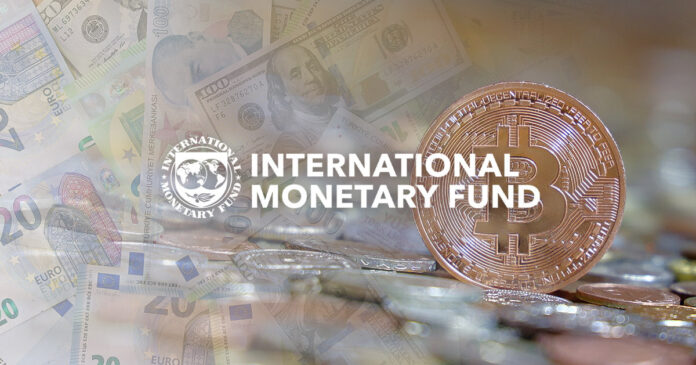
The International Monetary Fund (IMF) has recently released its new Global Financial Stability Report, in which the entire chapter was dedicated to the discussion about financial stability challenges posed by the accelerating crypto adoption.
The report reiterated old warnings, focusing on the advent of crypto in developing economies, while addressing some of the new emerging threats, namely stablecoins and DeFi.
‘Cryptoization’ risks
“Crypto asset providers’ lack of operational or cyber resilience poses risks,” read the report, adding that “anonymity and limited global standards create significant data gaps for regulators and pose risks to financial integrity.”
Despite assuring that financial stability risks are “not yet systemic,” the IMF warned that they should, given the global implications, be kept under a tight watch.
“Policymakers should implement global standards for crypto assets and enhance their ability to monitor the crypto ecosystem by addressing data gaps,” urged the IMF, while advising on how to tackle the global cryptoization trend.
While admitting that crypto adoption in emerging markets comes with certain benefits, the IMF warned that it “can accelerate cryptoization and circumvent exchange and capital control restrictions.”
“Increased trading of crypto assets in these economies could lead to destabilizing capital flows,” the report cautioned.
As for the countries eager to “fend off dollarization,” the IMF advised strengthening monetary policy, safeguarding the independence of central banks, and implementing “effective legal and regulatory measures to disincentivize foreign currency use,” as well as considering the benefits of issuing central bank digital currencies (CBDCs).
Contagion risks involved with stablecoins
By addressing stablecoins and DeFi, the report discussed the new emerging sources of risk in detail, while underscoring their potential to scale up quickly and become systemically important.
The report noted the growing role stablecoins, such as Tether (USDT) and USD Coin (USDC) play in the booming ecosystem, urging that “regulations should correspond to the risks they pose and the economic functions they perform.”
The IMF was alarmed about the contagion risks involved with stablecoins, as the report reminded that the sector’s market capitalization quadrupled in 2021 to more than $120 billion.
“Even if stablecoins are, for the time being, not large enough to be deemed “systemic,” there are financial stability implications for large banks in the event of fire sales of the assets that back stablecoins,” cautioned the IMF, adding that “an investor run in one country can also lead to cross-border spillovers if large global crypto exchanges are involved.”
While specifying “inadequate reserves and disclosure for some stablecoins” as the most pressing concerns, the report warned that “the concentrated ownership of stablecoins by market makers could also trigger wider contagion.”
Ad: Up to 20x margin on FTX.
Sign up
Get an edge on the cryptoasset market
Access more crypto insights and context in every article as a paid member of CryptoSlate Edge.
On-chain analysis
Price snapshots
More context
Join now for $19/month Explore all benefits

Like what you see? Subscribe for updates.
Credit: Source link






















 Bitcoin
Bitcoin  Ethereum
Ethereum  XRP
XRP  Tether
Tether  Solana
Solana  USDC
USDC  Dogecoin
Dogecoin  Cardano
Cardano  Lido Staked Ether
Lido Staked Ether  TRON
TRON  Wrapped Bitcoin
Wrapped Bitcoin  Wrapped stETH
Wrapped stETH  Chainlink
Chainlink  Avalanche
Avalanche  Sui
Sui  Stellar
Stellar  Litecoin
Litecoin  Shiba Inu
Shiba Inu  Toncoin
Toncoin  Hedera
Hedera  LEO Token
LEO Token  USDS
USDS  Hyperliquid
Hyperliquid  Polkadot
Polkadot  WETH
WETH  MANTRA
MANTRA  Bitcoin Cash
Bitcoin Cash  Ethena USDe
Ethena USDe  Bitget Token
Bitget Token  Wrapped eETH
Wrapped eETH  Uniswap
Uniswap  Monero
Monero  NEAR Protocol
NEAR Protocol  Pepe
Pepe  WhiteBIT Coin
WhiteBIT Coin  Aave
Aave  Ondo
Ondo  Bittensor
Bittensor  Aptos
Aptos  Internet Computer
Internet Computer  Dai
Dai  Official Trump
Official Trump  Ethereum Classic
Ethereum Classic  Mantle
Mantle  Tokenize Xchange
Tokenize Xchange  OKB
OKB  Gate
Gate  sUSDS
sUSDS  Coinbase Wrapped BTC
Coinbase Wrapped BTC 
